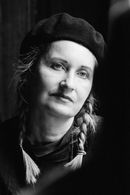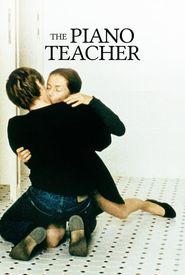Elfriede Jelinek was born to Olga, née Buchner, from the Viennese upper middle class, and Friedrich Jelinek, a chemist of Jewish-Czech descent. She spent her childhood and youth in Vienna, attending a monastery school and later studying theater studies and art history at the University of Vienna. However, she was forced to stop studying in 1967 due to anxiety and lived at home in isolation for a year.
During this time, Jelinek began her life as a professional writer, experimenting with texts and approaching the "Vienna Group" in her stylistic expression. In 1970, she wrote the first German-language pop novel, "we are decoys baby!", which she assembled from ordinary set pieces.
After completing her organ and piano training at the conservatory, Jelinek married Gottfried Hüngsberg in 1972. Her literary breakthrough came in 1975 with the novel "The Lovers", a Marxist-feminist caricature of a local novel. Her main topics now included women in a male-dominated society and the sexual oppression of women.
Jelinek's language technique involves using different types of text, such as advertising or Schubert songs, or stereotypical formulations in an ironic way to reveal their true meanings. Her novels often use language in the literal sense to question social ways of thinking.
Some of her notable works include "The Piano Player" (1983),"Lust" (1989),"What happened after Nora left her husband" (1979),"Clara S." (1982),and "Illness or Modern Women" (1987). Her major novel, "The Children of the Dead" (1995),addresses motifs such as home, mother-daughter relationships, life and death.
Jelinek has received numerous awards and prizes, including the Austrian State Scholarship for Literature (1972),the Script Prize of the Ministry of the Interior of the Federal Republic of Germany (1979),the Heinrich Böll Prize of the City of Cologne (1986),the Literature Prize of the State of Styria (1987),and the Georg Büchner Prize (1998).
In 2004, Jelinek received the Nobel Prize in Literature for "the musical flow of voices and counter-voices in novels and dramas that, with unique linguistic passion, reveal the absurdity and compelling power of social clichés."



















